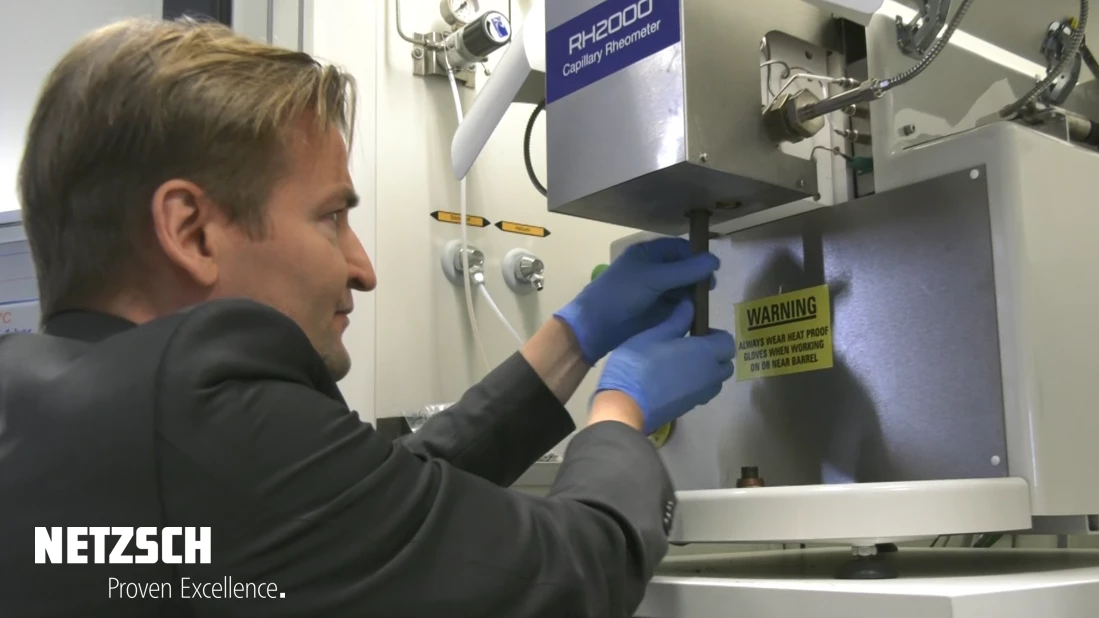
08.12.2020 by Milena Riedl
How to Operate the Rosand RH2000 Capillary Rheometer
The Rosand RH2000 Capillary Rheometer is an instrument that analyzes the flow properties of any type of material under processing conditions, like high forces and high speeds. Our rheology specialist, Torsten Remmler, shows how to prepare the instrument for an experiment and gives important tips when operating it.
In our previous articles about the basics of capillary rheometry, we have already covered the plentiful uses of a capillary rheometer along with the general working principle and characteristic flow curves.
The Basics of Capillary
Rheometry
Rheology studies the deformation and flow of fluids. Traditionally, capillary rheometers have been used to measure the shear viscosity and elasticity of viscous materials at high shear rates. Learn why you need a capillary rheometer and what data you can obtain.
Working Principle of Capillary Rheometers
Traditionally, capillary rheometers have been used to measure the shear viscosity and elasticity of viscous materials at high shear rates. In this article and video, Natalie Rudolph (PhD) explains the working principle, parameters and their relations of the capillary rheometer.
In 2020, NETZSCH became the new home of the Kinexus and Rosand rheometers by acquiring the product lines from Malvern Panalytical.
The Rosand RH2000 is an instrument that analyzes the flow properties of any type of material under processing conditions, like high forces and high speeds.
Our rheology specialist, Torsten Remmler, shows how to prepare the instrument for an experiment and gives important tips when operating it.
The following steps are included in the video:
- Inserting both dies
- Filling the instrument with the sample material
- Inserting the pistons
- Setup of the measurement in the software
- Evaluation of the measurement results
Are you keen to know more about our capillary rheology instruments? Visit our website for more information on the instruments or contact us at contact-NGB@NETZSCH.com Our rheology specialists are happy to answer your questions.